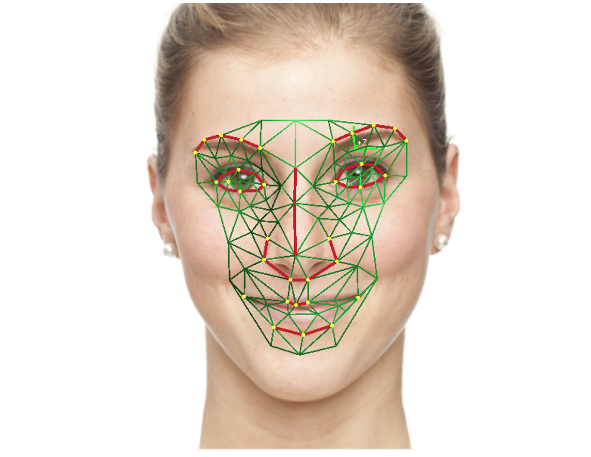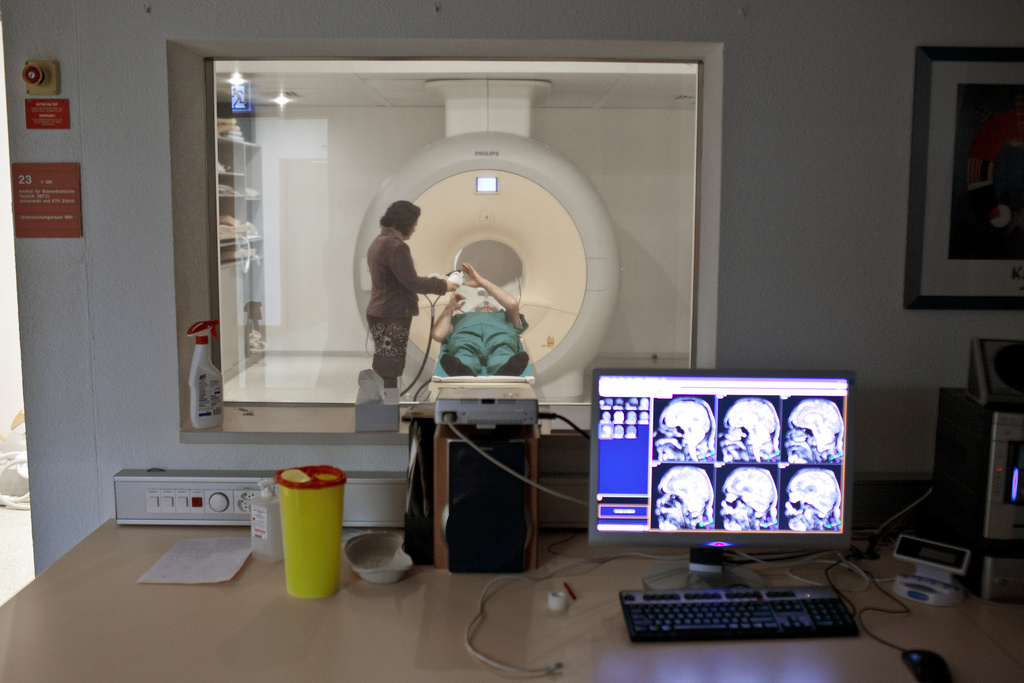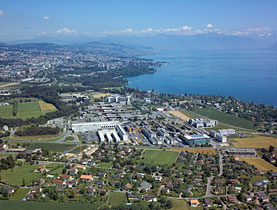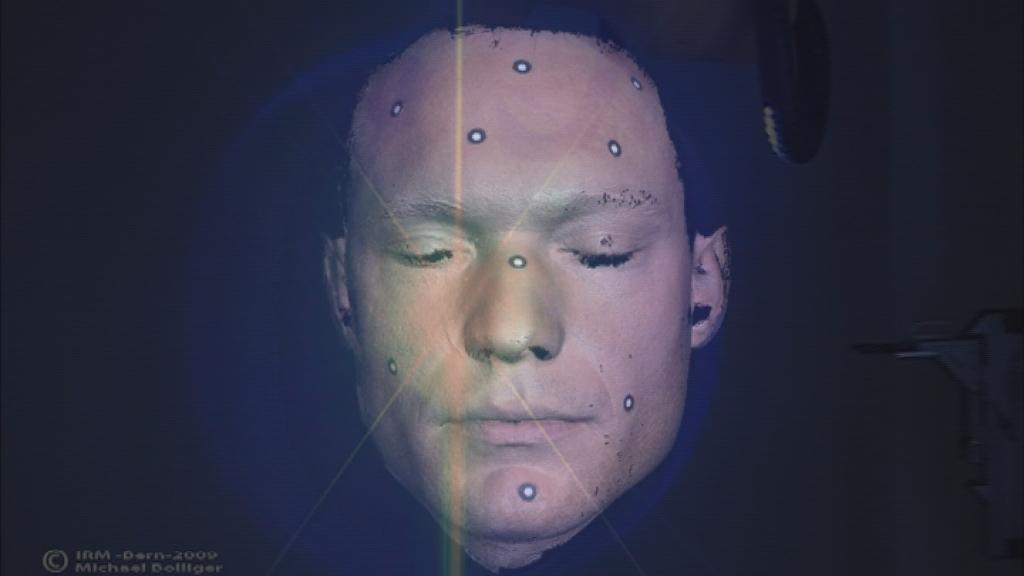Using science to unlock consumers’ minds

Measuring consumers’ emotional responses to products or advertising is a tough business, but a new Lausanne-based company says it might have found the answer.
nViso is a start-up at the Federal Institute of Technology in Lausanne (EPFL) that is developing technologies for deciphering emotions for the marketing industry. It does this by interpreting human facial expressions and eye movements online.
The innovative computer-vision software is part of a growth area as marketers search for new ways to not only reach their customers but to understand them.
“I think there is an immense need for this kind of software in the marketing research and advertising fields,” nViso’s co-founder Matteo Sorci told swissinfo.ch.
Over the past decade there has been a steady move away from expensive face-to-face interviews towards online research, which is much more extensive but “biased”, said Sorci.
“Something is missing,” said the 36-year-old EPFL student, who completed his PhD last year.
That “something” is understanding humans’ immediate irrational, emotional responses, which are crucial especially when talking about buying behaviour, he explained.
Together with New Zealander Tim Llewellynn, Sorci has developed Flash plug-in software which, with the help of a simple computer webcam, records and measures a viewer’s expressions and eye movements when confronted with different images.
“Lie to me”
Their system generates a mixed “emotional profile” by tracking 100 different points on a face in real time, identifying various features and relating them to models developed with the help of facial databases.
“This analysis is primarily performed on the basis of calculating facial angles and different-coloured areas of complexion,” said Jean-Philippe Thiran, professor of image analysis at the EPFL’s Signal Processing Laboratory, who oversaw the research.
nViso’s concept draws on pioneering research in the 1970s into facial expressions and emotions by US psychologist Paul Ekman, popularised in the American detective television series “Lie to me”, whereby basic emotions are classified into categories – anger, disgust, fear, happiness, sadness and surprise – and interpreted using a “Facial Action Coding System”.
Someone who is scared commonly raises their eyebrows, tenses their lips and drops their lower jaw; these movements can all be codified and processed by computers.
The eyes are also a fundamental element in this identification process. As part of the next stage to improve the capture of emotions, the start-up is focusing on viewers’ pupils and gaze to determine which areas of an image are more interesting.
Applications
Police forces, customs and airport security officials are increasingly employing techniques combining computer technology and psychology.
nViso hopes to commercialise its software for the marketing and advertising industry towards the end of 2010 where it will compete with five to six other firms.
Using computer vision to see how people react to advertising is already starting to be used by big business.
The Economist magazine recently reported that consumer giant Unilever was using expression-analysis software to identify how testers react to foods. And Procter & Gamble, an American competitor, is using similar technology to decode the expressions of focus groups viewing its ads.
But nViso’s core technology can be used in other ways. The firm is already in discussion with social networking and mobile phone manufacturers and computer games developers.
“The next-generation of gaming will be a total-body experience, and your face and expressions will be part of the interface,” said Thiran.
Start-up environment
Despite the difficult financial situation, nViso has received precious support. The Swiss National Centre of Competence awarded start-up capital of SFr150,000 ($128,100).
“And the research environment at EPFL is very motivating,” said Sorci.
The institute, which helps create between ten and 15 start-ups a year, provides office space at its new science park, as well as coaching, a business network, mentoring and help to find loans, he added.
But it’s a strange time for looking for start-up funds, admitted the Italian.
“There’s now a lot of money around and people are willing to invest, but the crisis has changed investors,” he said. “It’s a painful process as it now takes twice as long for them to decide as they want to double check everything.”
Simon Bradley in Lausanne, swissinfo.ch
Founded in 1853 as a private school under the name École Spéciale de Lausanne, it became the technical department of the public Académie de Lausanne in 1869.
In 1946, it was renamed the École Polytechnique de l’Université de Lausanne (EPUL).
In 1969, the EPUL was separated from the rest of Lausanne University and became a federal institute, known as the École Polytechnique Fédérale de Lausanne (EPFL) or Federal Institute of Technology Lausanne.
The EPFL is part of the Swiss Federal Institutes, together with its “sister” institute in Zurich, which are funded by the government. Most Swiss universities are funded by the cantons.
EPFL is the study, research and workplace of some 11,000 students, staff and professors from 107 countries.
About 245 professors teach mainly basic sciences (mathematics, physics and chemistry), engineering sciences and techniques, architecture, civil and environmental engineering, computer and communication sciences, life sciences, sociology and humanities.
The campus is expanding rapidly. Apart from a new “Learning Centre” library and study area, the EPFL is also building a new four-star hotel, student housing, innovation quarter for research labs and start-ups. It is also developing a new engineering sciences building, a 3,000-seater conference centre and more student housing.

In compliance with the JTI standards
More: SWI swissinfo.ch certified by the Journalism Trust Initiative






You can find an overview of ongoing debates with our journalists here. Please join us!
If you want to start a conversation about a topic raised in this article or want to report factual errors, email us at english@swissinfo.ch.